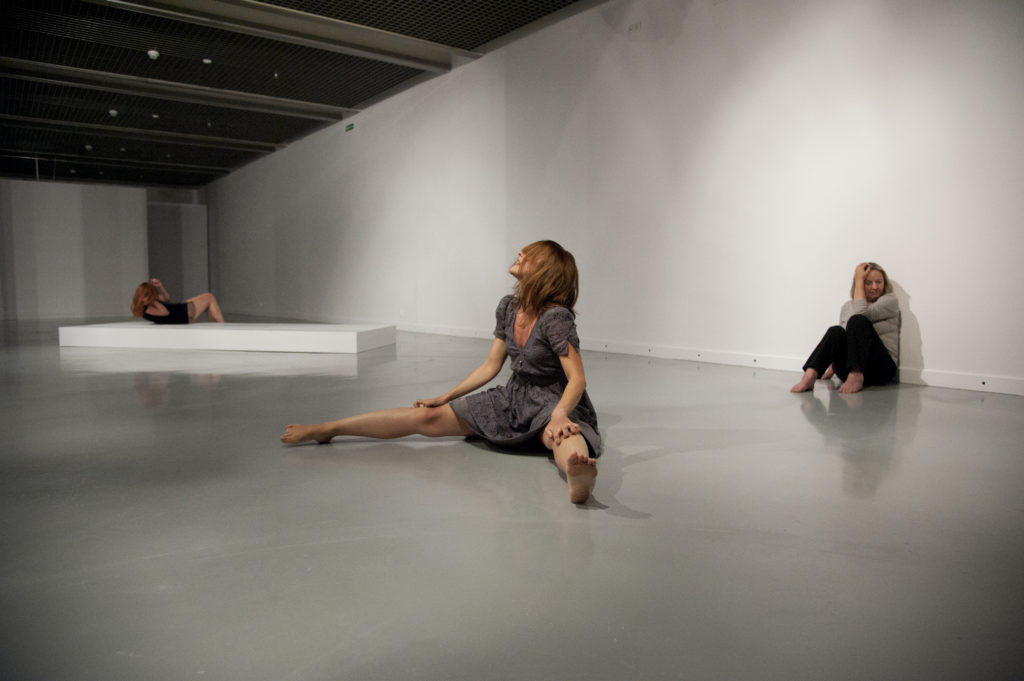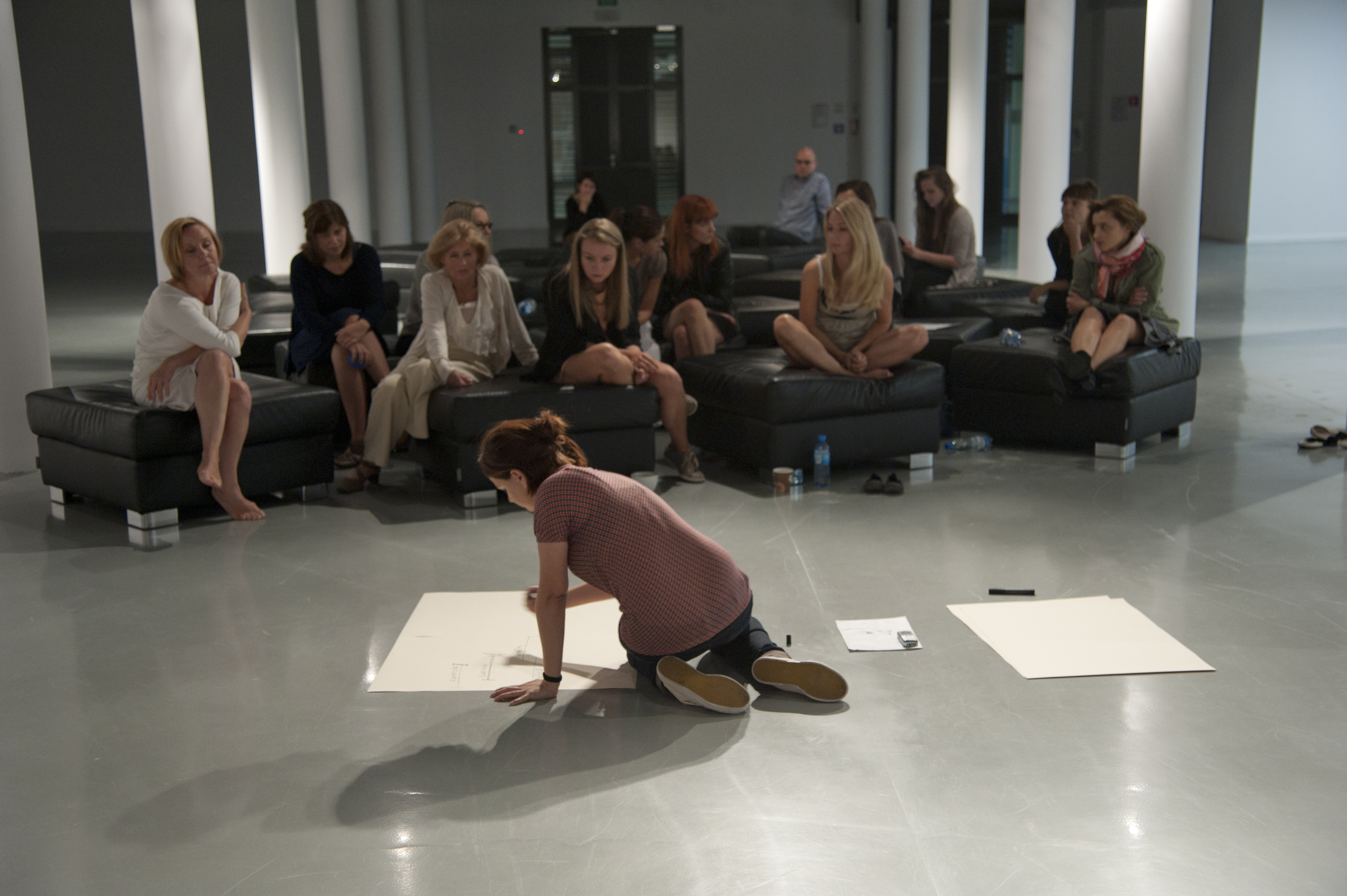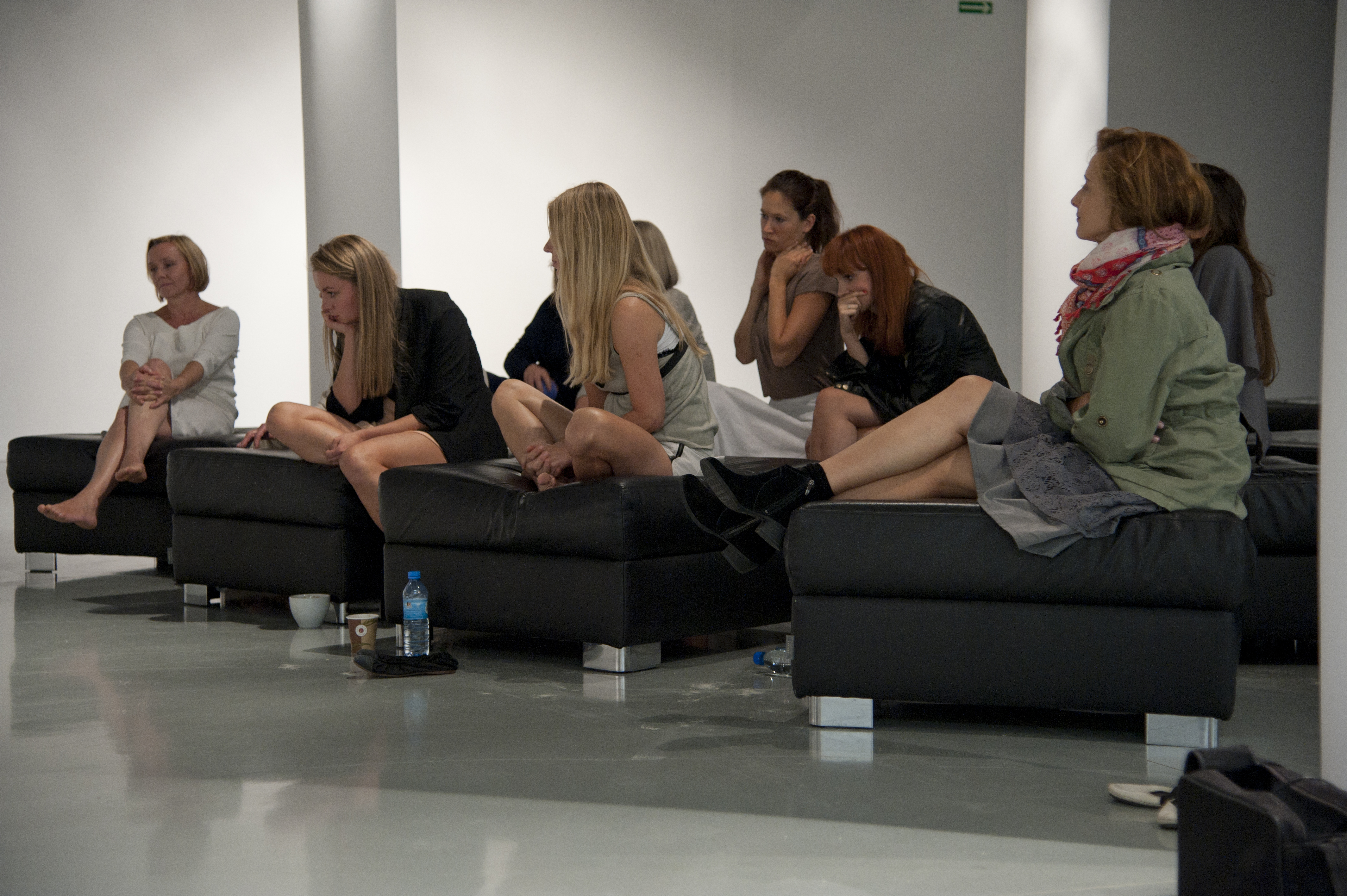Ophelias. Iconography of Madness.
Is it a mad postulate to demand full democracy for theatre? What about the democratisation of the very institution of theatre. Theatre as a place of the diversity of imagination and speech, free from political censorship, from the internal spectacle of power, from abuses that occur along the politician-director-theatre director-actress chain? A place which can shelter voices that are silent, attentive to detail, half-tones, slow-paced aesthetic investigations and reflection? An open space to host an encounter between artists and the audience, where sex and origins do not matter?
Is it mad to abandon theatre? To return and stay in it?
On the occasion of the release of the film Ophelias. Iconography of Madness – a complete record of the performance from 2012, I asked the actresses who participated in the spectacle about their perspectives not only concerning the work that we created together, but more broadly – on “being” in theatre and the theatre institution in the social and political context.
In these conversations theatre is defined as a ritual (Anna Ilczuk), mystery (Małgorzata Rudzka), a comfortable space to escape life (Marta Kalmus) or, quite the opposite, a place of confrontation with the most difficult problems of the external world (Elzbieta Karkoszka) and a place that reveals both the bright and the grim aspects of creative work, the limitations that hamper one’s own development, social insensitivity and structures of power.
The multiplicity of stories, feelings and opinions expressed by my interlocutors, complemented by four critical texts that comment on the project, depicts a broad spectrum of approaches and experiences, providing material for discussion on the shape and role of theatre in today’s society in Poland.
About the spectacle:
Ophelias. Iconography of Madness is an hour-long spectacle set in a museum space. One place and time sees the encounter of more than a dozen Ophelias, more than a dozen approaches to the role. In an empty exhibition space, selected actresses who had played the role of Ophelia in theatre stagings of Shakespeare’s Hamlet, re-enacted the final scene of madness.
The underlying premise consisted in a confrontation of approaches to directing and acting, while the goal was to demonstrate how women’s madness is portrayed on stage. Work on the spectacle embraced individual meetings and rehearsals, working in the actual space – planning the choreography in relation to architecture and the final composition of individual scenes during group rehearsals. What emerged is a theatre found footage. A work of art that adopts theatre and the art of acting as its material.
The protagonists of the performance are primarily the actresses who accepted the invitation to participate in a re-creation of the role they had played before. Their appearance in the performance came as an effect of work that was pursued together. The main element of the process consisted in recalling the role, activating the memory of the body and consciousness, and at the same time – reflection on one’s own relation to what Ophelia embodies and the meaning of playing her role. This is the main reason why I decided to supplement the release of the film with a cycle of conversations.
Stagings of Hamlet in which the participants of the performance acted:
Iwona Bielska ― dir. Jerzy Krasowski, Juliusz Słowacki Theatre, Cracow, 1978;
Monika Dąbrowska ― dir. Jolanta Donejko and Piotr Borowski, Studium Teatralne, Warsaw, 2005;
Ewa Domańska ― dir. Jan Englert, Polish Television Theatre, 1985;
Gabriela Frycz ― dir. Waldemar Śmigasiewicz, Teatr Nowy, Poznań, 2007;
Anna Ilczuk ― dir. Monika Pęcikiewicz, Polski Theatre, Wrocław, 2008;
Marta Kalmus-Jankowska ― dir. Krzysztof Nazar, Coastal Theatre, Gdańsk, 1996;
Marta Kalmus-Jankowska ― Jan Klata, Coastal Theatre, Gdańsk, 2004;
Elżbieta Karkoszka ― dir. Jerzy Wróblewski, Teatr Rozmaitości, Cracow, 1967;
Krystyna Łubieńska ― dir. Andrzej Wajda, Coastal Theatre, Gdańsk, 1960;
Karolina Porcari ― dir. Radosław Rychcik, Stefan Żeromski Theatre, Kielce, 2011;
Agnieszka Radzikowska ― dir. Attila Keresztes, Stanisław Wyspiański Teatr Śląski, Katowice, 2012;
Małgorzata Rudzka ― dir. Andrzej Domalik, Dramatic Theatre, Warsaw, 1992;
Bożena Stryjkówna ― dir. Jan Machulski, Ochota Theatre, Warsaw, 1985.


